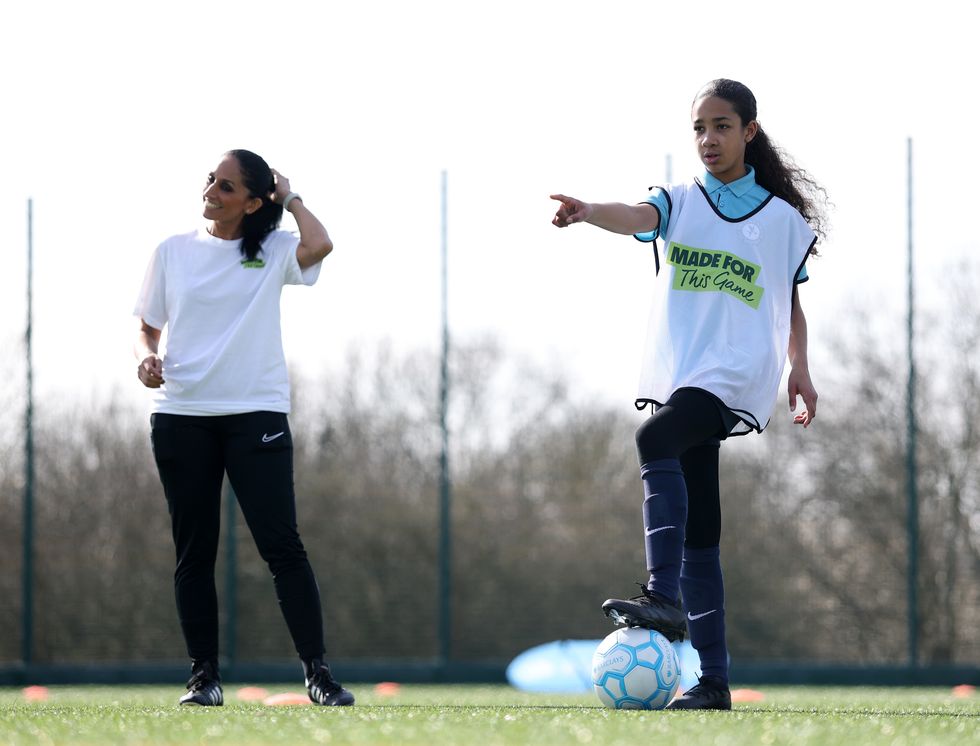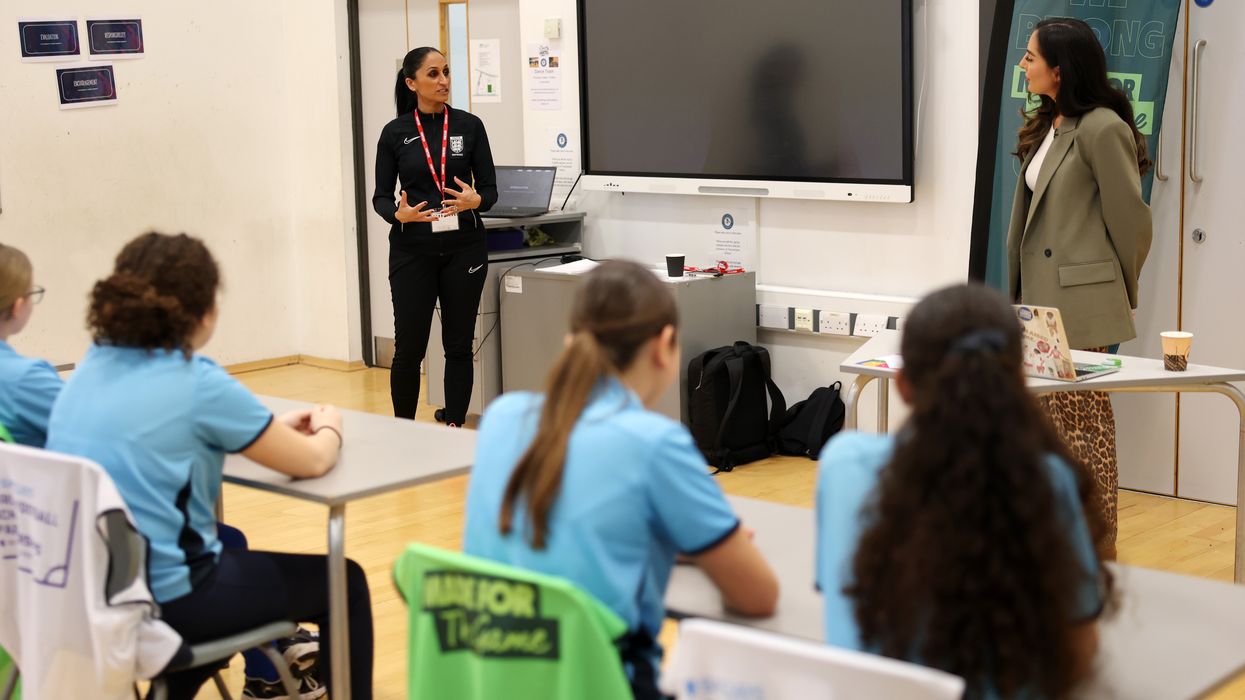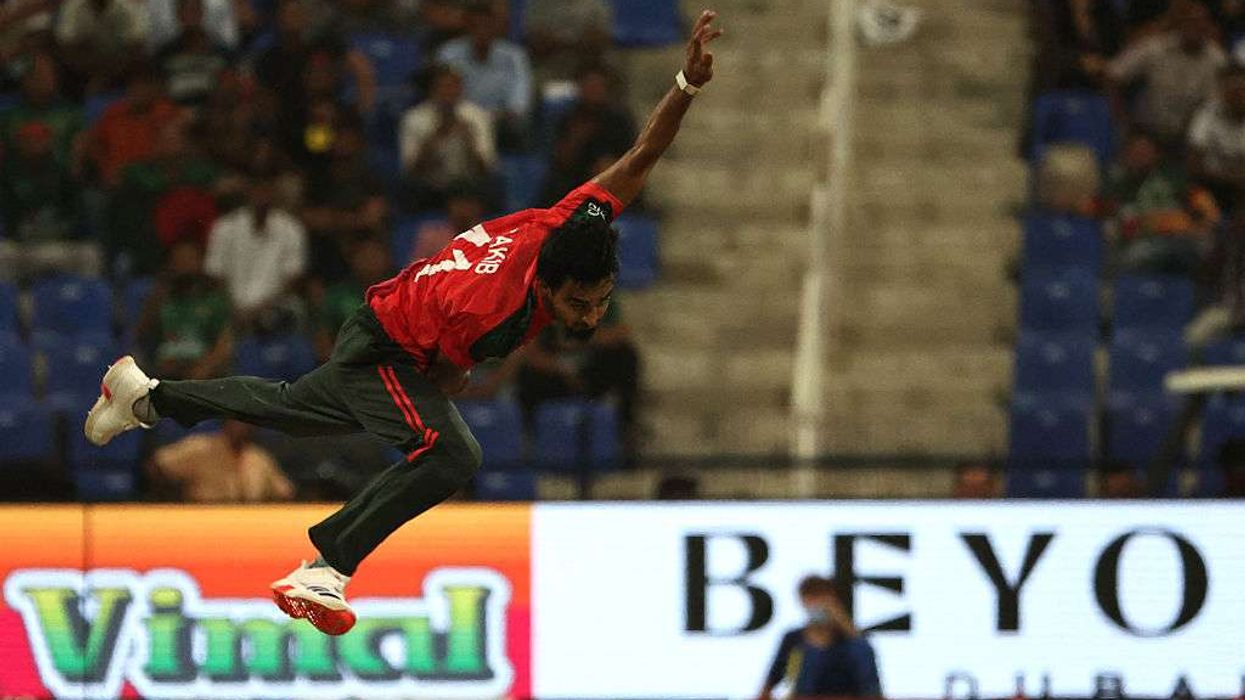“IF YOU don’t see it, you assume it’s not for you.”
For Surekha Griffiths, an award-winning grassroots referee, this simple truth has shaped her journey in football. A mother of two, she took up officiating after being encouraged by her children.
Today, she is not only a role model for aspiring referees, but also an advocate for greater diversity in the game. Griffiths’ love for football started at home.
“My husband absolutely loves watching me and he loves watching the boys, but he hates football. So as far as the boys are concerned, they’ve grown up with their mum being a football lover,” she told Eastern Eye in an interview.

Watching her children play, she realised she already had a deep knowledge of the game.
“They said, ‘Mum, you know everything about football… why don’t you do it?’”
That encouragement pushed her to overcome initial hesitation. “What I immediately wanted to say was, ‘No, mums don’t do it,’” she admitted. But her children’s confidence in her abilities made her reconsider.
“They’re not growing up in the same generation I grew up in. They were clear – ‘Mum, you’re the one who’s got an interest in football’.
” Determined to set an example, Griffiths enrolled in a refereeing course with Middlesex FA. What started as a way to support her children’s matches soon became much more. “For the last three years or so, I’ve been officiating their games when I can, but now they get appointed referees as well by the county. So, I do lots of other games.”
Her refereeing experience has expanded to include a variety of matches, from grassroots games to the Middlesex FA Pan-Disability League. Griffiths believes refereeing is as rewarding as playing, and she hopes to inspire others among the south Asian communities to consider the role.
Like many referees, Griffiths faced challenges early on.
“My initial challenges were always my own feeling of being an imposter,” she said. “My view of what a referee was – middle-aged, usually white male – made me feel like I didn’t belong.”
Stepping onto the pitch, particularly when officiating men’s and boys’ matches, made her self-conscious. “I was carrying that energy with me… I was tuning into the abuse, the shouting, and it was affecting my performance.”
However, she soon learned to focus on her authority and the laws of the game. “My local county was brilliant. I did the work to focus on how to put my authority on that pitch while still going unnoticed.”
Experience helped her grow in confidence. “I’ve not changed into a man, I’ve not gone younger, but I’ve now learnt how to make those things unimportant. That was me letting go of feeling like an imposter.”
Griffiths took part in this year’s Biggest Ever Football Session alongside England and Arsenal legend Rachel Yankey on March 7.
“What’s brilliant is that I have been asked to be involved in a session at a high school,” she said. “That’s where sustainability comes in – football making links with schools, where children, women, and girls are most influential.”
As in previous years, the Biggest Ever Football Session encouraged schools to provide on-pitch opportunities for girls to play the game. However, aligning with the FA’s new Made For This Game campaign (highlighting non-playing roles in the game), this year’s event also featured offpitch sessions, including coaching, refereeing, and journalism.
At the event, Griffiths worked alongside Yankey to promote these roles. “She’s a fantastic advocate for the women’s game, decorated with everything she’s done,” Griffiths said. “I’ll be there to watch sessions, officiate some mini-games, and talk to students about the different roles in football.”
She emphasised that football isn’t just about playing.
“Not everybody is sporty, but they want to be involved in sport. Football should be represented by society now, and that includes women and girls – not just on the pitch, but as referees, coaches, administrators, or secretaries.”
Griffiths conceded that while she “loved being involved in football, but I know I’m not good at playing it”.
She said, “I never played growing up, but I loved watching it. We need representatives across all areas of the game, because that’s when football can truly be equal.”
As a British Asian referee, Griffiths hopes her visibility encourages others from similar backgrounds.
“It’s great if I’m inspiring people, but I’m not trying to inspire – it just happens,” she said.
“If you don’t see it, you assume it’s not for you.”
She noted that cultural expectations can sometimes discourage participation. “Sport is still seen as very masculine. In many south Asian and other Asian cultures, being involved in a masculine sport isn’t always valued. There’s also a desire to pursue stable career paths, so roles in football might not be encouraged.”
However, Griffiths has found support from her family.
“My dad is very proud of the work we’re doing in football. My kids are growing up believing in equality,” she said.
“I’m bringing them up as feminists – not because they think women are better than men, but because they believe in equality.”
With parents of Hindu-Punjabi heritage from India, Griffiths has strong ties to the country and visits regularly.
“My mum was born in Bombay, my dad is from Delhi. My husband, who is white British, is very proudly married to someone from a south Asian background, and we try to bring our children up with a real balance of both cultures.”
She has seen India’s love for sport firsthand. “If you drive through Bombay on a normal day, the traffic is ridiculous. But if India is playing cricket, there’s no traffic – everyone is at home watching,” she said.
While cricket remains dominant, she believes football is growing.
“Sport as a career in India is very respected. I think we’re not too far away from seeing a very successful Indian international team.”
For young people, especially girls, who are interested in refereeing, Griffiths has a message: go for it.
“If you’re interested in refereeing and don’t know where to start, contact your local county FA. Speak to people, go to local clubs – they can direct you.”
She also urged young referees to push past self-doubt.
“Don’t let your own unconscious bias or thoughts of what you think a referee looks like limit your future,” she said. “You are paving the way for others to do something great in the future, so don’t hold back.”
Griffiths firmly believes football has a place for everyone. “If refereeing isn’t for you, find another role in football. There’s definitely a place for all girls and women in the game if they’re interested in it.













